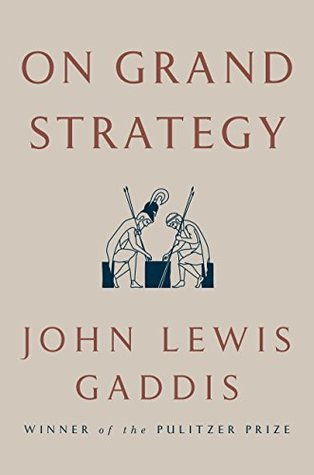More on this book
Community
Kindle Notes & Highlights
Because ends exist only in the imagination, they can be infinite: a throne on the moon, perhaps, with a great view. Means, though, are stubbornly finite: they’re boots on the ground, ships in the sea, and the bodies required to fill them. Ends and means have to connect if anything is to happen. They’re never, however, interchangeable.
Clausewitz’s concept of training, however, retains its relevance. It’s the best protection we have against strategies getting stupider as they become grander, a recurring problem in peace as well as war.
Having no other objective, they failed to produce even respectable ruins.
it would take well over two millennia for democracy again to become a model with mass appeal. That’s not farsightedness in a steersman. It’s running your vessel onto rocks, with a long wait for rescuers to arrive.
“Island” strategies require steady nerves. You have to be able to watch smoke rise on horizons you once controlled without losing your own self-confidence, or shaking that of allies, or strengthening that of adversaries. Building walls and proclaiming perimeters can be rational choices, for it makes little sense to pursue lost causes with limited resources. But strategy isn’t always a rational enterprise.
Augustine’s targets were deviations from orthodoxy, which he attacked with an almost Leninist zeal as if the only way to advance a faith is to purge it of all nuance.
Theory exists so that one need not start afresh each time sorting out the material and plowing through it, but will find it ready to hand and in good order. It is meant to educate the mind of the future commander, or, more accurately, to guide him in his self-education, not to accompany him to the battlefield; just as a wise teacher guides and stimulates a young man’s intellectual development, but is careful not to lead him by the hand for the rest of his life.
“it will be my duty to so cooperate with the President-elect, as to save the Union between the election and the inauguration.” For, Lincoln added, “he will have secured his election on such grounds that he can not possibly save it afterwards.”100
Wilson confused matters further by sending American troops into Siberia and northern Russia as part of a multinational effort aimed ostensibly at keeping Russia in the war, but in fact at deposing the Bolsheviks.55 After which he saved the Bolsheviks by defeating the Germans in France, thereby undoing their victory on the eastern front and the Carthaginian peace they’d imposed in the Treaty of Brest-Litovsk.56 The skills with which Wilson brought America into the war eluded him totally when Russia left it.
Stalin’s first Five-Year Plan imported entire factories from the United States, along with the appropriate mass-production techniques—Henry Ford himself led the way. American exports to the Soviet Union exceeded those of any other country by the end of the 1920s, and the Russians were becoming the largest foreign purchaser of American agricultural and industrial equipment.77 But the Harding and Coolidge administrations surprised Stalin by retaining Wilson’s policy of diplomatic non-recognition, warning—with no evident irony—of international communism’s subversive objectives. Material interests
...more
Hull recently to enquire why no guarantees for Poland were obtained at the [October 1943] Moscow Conference. Hull is said to have suggested that [Landon] go to Moscow himself and plead the Poles’ cause with Marshal Stalin in the name of the great Middle West; Landon asked whether Hull really thought this might save the Poles. Hull begged him on no account to forget to take a specific commitment from the Republican Party to go to immediate war for the integrity of Poland, should the Russians prove obdurate, and a clear promise from the United States Army and Navy to lend them assistance in that
...more


